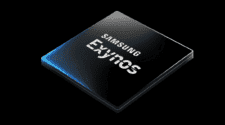Recently, TSMC’s computer system was suddenly attacked by some advanced viruses and all its three major production bases were shut down. Taiwan Semiconductor Manufacturing Company (TSMC) is a high ranking foundry which serves many huge companies worldwide. In particular, Apple, Qualcomm and Huawei are using the TSMC 7nm process to produce new processors. The degree of damage caused by viruses is yet to be ascertained. Fortunately, the company’s main computer system was not affected by the virus attack. However, the company quickly fixed things up and restored production, but also admitted that it will affect its performance. TSMC’s third-quarter revenue will plunge by about 3%, and the gross profit margin will be reduced by about 1%.

So what is the virus? TSMC had previously said that the computer virus appeared during the installation of a new software tool, and the tool spread when it connected to the company network. According to the latest disclosure by Wei Zhejia, president of TSMC, the virus is a variant of “Eternal Blue”.
The Eternal Blue attack program comes from the National Security Agency’s (NSA) hacker arsenal, which has been stolen and modified by criminals to create a malicious worm code based on the Windows Network Sharing Protocol vulnerability. This went global since May 2017. There have been many attacks by different variants of “Eternal Blue”. The most widely used is the WannaCry ransom virus, which has infected more than 300,000 computers in more than 150 countries causing losses of more than $8 billion. It is the most influential virus since Panda burning incense.




